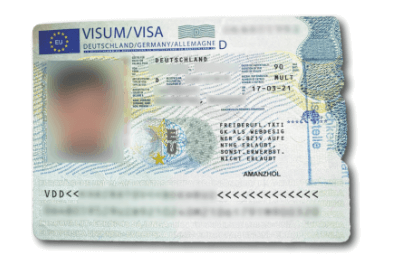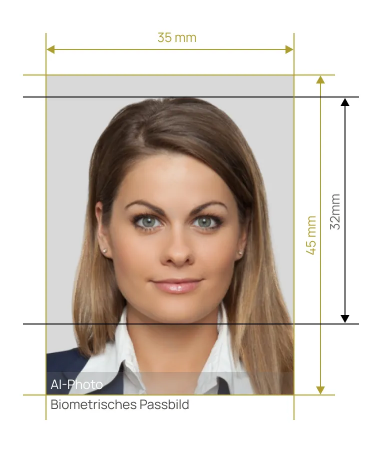Obtaining a freelance visa can be a terrific way to start your life and career in Germany. However, the freelance visa in Germany application process comes with challenges. This guide will delve into the essential details of applying for a freelance visa both in Germany and from your home country, ensuring you are well-prepared for every step.
What Is a German Freelance Visa?
A German freelance visa, or a “Freiberufler” visa, is a residence permit for the self-employed in Germany. Holders of freelance visas are permitted to engage in freelancing activities within Germany. The overall freelance visa is divided into two parts:

- Freelancer entry visa: this is a national (D) visa you apply for at the German Embassy for entry to Germany. This is only valid for three months. Once you arrive in Germany, you need to convert the visa for a freelancer residence permit.
- Freelancer residence permit: you need to apply for a freelancer residence permit at the German Immigration Office after you arrive in Germany with the entry visa. It allows you to live and work in the country for up to three years.
Advantages of Applying for a Germany Freelance Visa
The Germany freelance visa grants you benefits in various ways:
- It allows your stay in Germany for up to three years and is extendable. After five years, it leads to Germany permanent residence.
- Freelance legally in Germany.
- Visit other Schengen countries without a visa.
- Bring your family to Germany.
Who Are Eligible for Germany Freelance Visa Application?
Individuals who have an eligible profession and meet the requirements can apply for a German freelance visa.
To begin with, you are qualified as a ‘freelancer’ in Germany if you have independent scientific, literary, teaching, educational, or medical professions, such as:
- Lawyers
- Surveyors
- Engineers
- Architects
- Accountants
- Business economists
- Journalists
- Translators
- Doctors
- Veterinarians
If uncertain whether your profession falls into the freelance category, you may contact a local tax office to help clarify it.
Also, to be eligible for a freelance visa application, you must comply with the following requirements:
- Enough income:
Demonstrate that you have enough financial resources to support yourself and any dependents in Germany.
- Local economic interest:
Prove that there are clients in Germany interested in your services.
- Health Insurance:
Have comprehensive health insurance coverage for yourself and any dependents in Germany.
If you are over 45 years old, you must have one of the following:
- a private retirement pension of 1503.34 euros per month for at least 12 years by age 67;
- or a public pension in Germany, Australia, Bosnia-Herzegovina, Chile, India, Israel, Japan, Canada, Kosovo, Morocco, North Macedonia, Montenegro, Serbia, South Korea, Tunisia, Turkey, or the United States;
- or 21,6481 euros in business assets.
What Documents Are Required for Germany Freelance Visa Application?
The documents required for the Freelance visa application are as follows:
- Completed visa application form
- Appointment confirmation
- Passport
- A recent 35 × 45 mm biometric photo

- Proof of health insurance (health insurance card, public health insurance, or private health insurance)
- Proof of housing in Germany (lease, tenancy confirmation, registration certificate, and proof of rent payments)
- Proof of sufficient financial means (bank statements)
- Completed Revenue forecast form
- Two or more letters of intent from potential clients
- Occupation practice permit needed for your job
- Proof of retirement pension (if you are over 45 years old)
- Certified translations if your documents are not in German
- Application fee of 100 euros.
Other supporting documents that make your application more convincing include:
- Letters of recommendation from previous employers
- Resume
- Cover letter
- Portfolio or examples of your work
- Signed contracts
- Letters of reference
- Proof of education.
How to Get a Freelance Visa in Germany
If you’re already in Germany, you can apply for a freelancer residence permit under one of the circumstances:
- You have a German residence permit, and want to change or renew it;
- You have a national visa for self-employment and need to convert it to a freelance visa.
Here is a step-by-step guide:
✅Step 1. Confirm your eligibility
Ensure you have an eligible profession and meet the requirements mentioned above for a freelance visa in Germany.
✅Step 2. Settle in Germany and get registered
Find a place to live and register your address at the local citizen’s office as soon as possible. You will get a tax ID and registration certificate.
✅Step 3. Get health insurance and other required documents
It is advised to ask a health insurance broker to help you choose an appropriate health insurance for you. Prepare the required documents as mentioned above.
✅Step 4. Open a bank account
Open a German bank account to pay your rent and receive income.
✅Step 5. Make an appointment
Contact the relevant immigration office and send your message with your application documents attached.
✅Step 6. Receive the appointment
It takes no more than 3 months to receive an email from the office to invite you for a visa appointment. During this period, you can continue staying in Germany even if your current visa has expired.
✅Step 7. Attend the freelance visa appointment
Go to your freelance visa appointment with the required documents mentioned above. If the application is approved, you will receive your freelance visa plastic card on your second appointment in around 8 weeks.
✅Step 8. Receive your freelance visa
When you pick up your freelance visa, pay the 100 euro application fee in cash or credit card.
How to Get a Germany Freelance Visa from Your Home Country
You may apply for a German freelance visa in your home country, which is cheaper and safer. Follow the steps:
✅Step 1. Book an appointment at a German embassy or consulate
Use the search tool to find your local German embassy or consulate. Make a visa appointment with them.
✅Step 2. Prepare for your visa interview
Prepare the necessary documents as mentioned above.
✅Step 3. Attend the interview with the required documents
Go to your appointment with your documents. Once approved, you will need to wait for around three months to get your visa.
✅Step 4. Receive your national visa
You will be notified when your visa is issued. Visit the embassy or consulate again collect your national visa, and pay the visa fee of around 75 euros. It allows you to enter Germany and start your work.
✅Step 5. Convert your national visa into a freelance visa in Germany
After arrival in Germany, convert your national visa into a freelance visa as soon as possible.
To convert a national visa into a freelance visa:
- Contact the relevant immigration office and make an appointment.
- Go to your appointment where your fingerprints will be taken for your freelance visa.
- Around 8 weeks later, on your second appointment with the immigration office, bring your passport and your national visa and collect your freelance visa. Pay the application fee of 100 euros in cash or credit card.
Germany Freelance Visa Cost & Processing Time
Generally, the processing time for a German freelance visa can take around 3 months. Therefore, it is important to prepare in advance.
The freelance visa Germany costs are as follows:
- National visa fee: 75 euros
- Residence permit fee: 100 euros.
Germany Freelance Visa Validity
The freelancer entry visa is valid for three months. During this period you need to enter Germany and apply for a freelancer residence permit. The validity of the residence permit ranges from 1 to 3 years.
Can I Extend Germany Freelance Visa?
Yes, you can extend your German freelance visa. It is advised to prepare for the renewal application at least 3 months before your current freelancer residence permit expires.
Can I Convert Germany Freelance Visa to Permanent Residency?
Yes. After living in Germany with a valid freelancer residence permit for five years, you may apply for permanent residency.
FAQs
How hard is it to get a freelance visa in Germany?
The difficulty of obtaining a German freelance visa can vary depending on several factors, including your specific field and your financial situation. While the process can be challenging, it’s achievable with careful planning and preparation.
Can a freelance visa apply for unemployment benefits in Germany?
No. A freelance visa in Germany does not entitle you to unemployment benefits. As a freelancer, you are self-employed and not part of the standard employment system. This means you don’t pay into the unemployment insurance fund, and therefore, you’re not eligible for the standard unemployment benefits.
Can I bring my family to Germany on a freelance visa?
Yes. With a freelance visa, you can bring your family to Germany, meanwhile, you need to apply for a family reunion visa for your family members.
What is the minimum income for a freelance visa in Germany?
To get a freelance visa, you need to demonstrate that you have sufficient financial means to support yourself in Germany. The minimum income amount may vary in different cities. For example, in Berlin, your monthly income must be higher than the total amount of your rent, health insurance, and 563 euros.
Do I need to speak German to apply for a freelance visa?
No. You do not need to speak German to get a freelance visa.
Conclusion
Although the freelance visa Germany application process can be long and complex, with a comprehensive understanding and detailed guide offered by this article, you can begin your freelancing journey in Germany confidently. Be well prepared, seize the opportunity, and make changes to your life with the freelance visa application as a start!